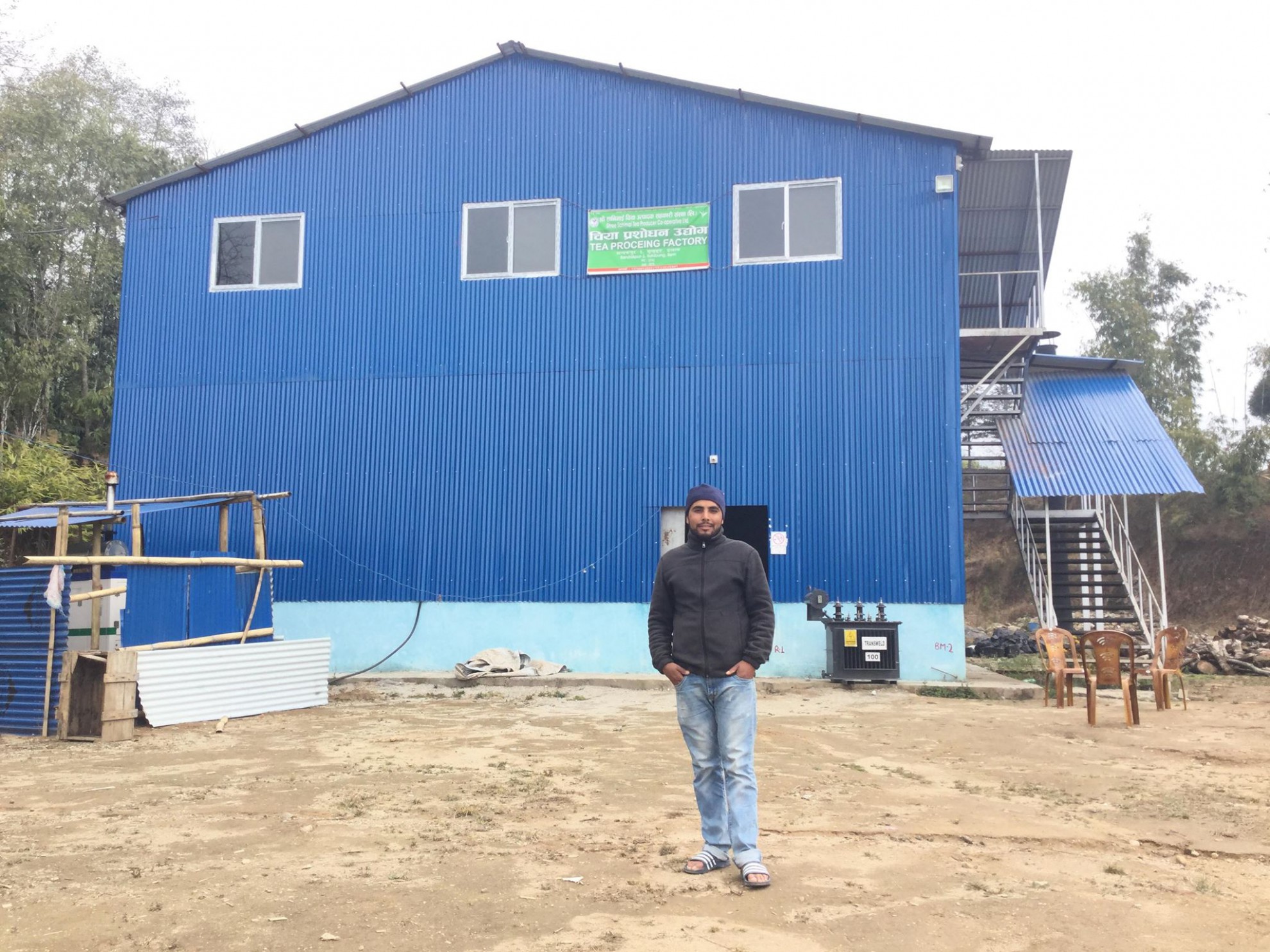7 stories of ambitious farmers around the world (part 6)
03-07-2019Agriterra reaches almost 700,000 farmers, organised in in more than 250 cooperatives.
We interviewed 7 farmers from Nepal (2), Peru, Uganda, Philippines, China and Ethiopia to find out if their situation has been changed.
How was their situation several years ago (or before their membership), what has happened during their membership, what were the most significant changes in their situation and how did the changes come about?
Below you can read the story of Dilli Ram Khatiwada from Nepal.
Dilli Ram Khatiwada
Young farmer and member of Sanimai Tea Producer Cooperative Society Ltd.
Age: 29
Member since: 2011
District/region: Ilam /Mechi
Village: Sulubung
Collective voice
The family of Dilli Ram Khatiwada consists of 6 members: his grandmother, his father, his mother, his wife and his son. They have 1 cow.
Dilli Ram joined the Sanimai Tea Producer Cooperative Society Ltd. after he felt the necessity for a collective voice for all farmers and for the promotion and marketing of tea. The reason for his involvement in the cooperative was to tackle the problem of middlemen, who were giving low prices for green leaves of tea.
Dilli Ram is also a member of the youth committee of his tea cooperative and currently he is also involved in the marketing of tea products of his cooperative.
After becoming a member of the cooperative I was confident to get a better price for green tea leaves, because of the collective bargaining power.
In the past
Comparing the situation to that of a few years ago, tea farmers were lacking proper and adequate education and techniques about tea farming. Their source of income consisted of selling green leaves to middlemen or to private tea factories.
Youths weren’t engaged in the working process. Before the establishment of the cooperative, sharing knowledge was very limited. Only a few people were able to provide a quality education to their children. Therefore, due to the lack of knowledge technology and low economic growth people were not able to achieve a good standard of living.

Capacity building
Capacity building is the most significant change that took place for Dilli Ram as well as for his surroundings. Becoming a young farmer and a member of his cooperative he grabbed various opportunities to participate in the programmes conducted by his cooperative as well as by the Central and District Tea Cooperative Federation.
He also achieved an increase in the price of green leaves by 5 NPR per kilogram due to the collective bargaining. Before, he wasn’t aware of the technology of tea farming nor for tea processing, but now he takes care of his tea plantation himself, he shares knowledge and he has become an employee of the tea factory of his cooperative.
To gain knowledge and increase prices were the most significant changes that took place.
Economic growth
Dilli Ram achieved leadership skills from the capacity building training programmes. Now he and the other participants are motivated and inspire many more people around the world.
They are producing quality products which automatically lead to economic growth for their families. Because of the economic growth they are now able to spend money on the health and education of family members.
Many youths used to go abroad in search of job opportunities, but now the cooperative industry has become a great platform for providing job opportunities to many youths in Nepal.
Cooperatives have also transformed farmers to entrepreneurs, providing a better price for their products as well as increasing youth involvement. These are the most significant changes that took place.
